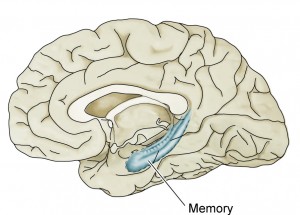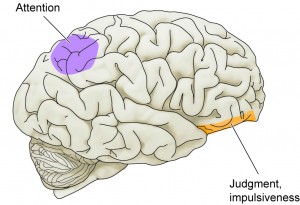A father in Nome, Alaska, told a story about his daughter. She was perched on her sled on a road at the top of a hill.
Another road intersected with the sledding road at the bottom of the hill. He saw a truck approaching, waved and called to her to warn her about the truck. She looked, saw the truck, waved and smiled, and zoomed down the hill on her sled. She passed underneath the truck between the front and rear sets of wheels as the truck moved by, and came to a stop near her father, who had fallen over in fear. When he would speak, he said, “Didn’t you see the truck?” She smiled and said, “Sure. I didn’t know it was going to go there.” She was unable to predict the future path of the truck as it crossed in front of her.
Biermeister (Malbin, 1993)
Many students with FASD exhibit poor impulse control. This leads to many difficulties for the FASD student. Impulsivity often leads to students being put in dangerous or unsafe situations. They want to belong and they want to have friends. Due to many variables, such as poor social judgment and confusion under pressure, the FASD student will follow others and take direction from them. These students are vulnerable.
FASD students have difficulty anticipating or considering the effect of their actions. They are “audible thinkers;” often they say the first thing that they think of without screening thoughts. Rules are broken repeatedly. Teachers will set up logical consequences, but these students are unable to link cause-and-effect. They have trouble generalizing from one situation to the next.


These students are also quick to anger. Sometimes they react angrily to something and lash out. They can be quite volatile. The combination of poor impulse control and attention deficits can lead to impulsive behavior, but the feeling that ignited the behavior is soon forgotten. It’s hard to predict what these students will do, or how they will react.
Impulsivity also leads to stealing, lying, and physical aggression.
She knows it is wrong to steal, but if it means missing ice cream from the ice cream truck, she will take money from my purse without a thought of the consequences.
(Lasser, 1999)
An object looks inviting. The FASD student picks up the appealing object, does not stop to consider whose it is, or plan what he/she should do with it. Instead he puts it in his or her pocket and then forgets that it is there. The FAS student does not intend to steal, nor do they have the savvy to cover it up. Even if other students are stealing, it is the FASD student who will end up being caught.
Innocent impulses get FASD students in trouble. Their behavior is not seen as innocent. Instead the student is viewed as manipulative, dishonest, and mean-spirited. Poor parenting skills are often blamed.
FASD students have the following deficits, which explain their impulsive behavior . These deficits are associated with damage to specific areas in the cerebral cortex, hippocampus, and corpus callosum.
- These students have attention deficits.
- These students have impaired executive functioning.
- These students have information-processing difficulties.
- These students have memory deficits.
- These students have poor personal boundaries.